Release Date: September 16, 2014
MPAA Rating: PG-13
Runtime: 123 mins.
Director: Gareth Edwards
Studio: Legendary Pictures
Genre: Sci-Fi, Action
Stars:Bryan Cranston, Aaron Taylor-Johnson, Elizabeth Olsen, Ken Watanabe
[divider]
During a horrible accident at a nuclear power plant in Japan a man loses his wife , his job, and seemingly, his mind. Fast forward 15 years and Joe Brody (Cranston) is still looking for answers as to what really happened that day. His son, Ford, (Taylor-Johnson) whom is now an EOD tech in the military gets a phone call that his father has been arrested in Japan flies off to get him out. After a little convincing Ford is talked in to breaking in to a quarantined zone where the accident occurred. This ends up dragging him in to a face to face encounter with unstoppable monsters. Who will save the day when man is no longer able to defend itself ? I’m pretty sure you can figure that out.
As far as the locales go they picked some good spots. They jumped between Japan, Hawaii, Las Vegas, and San Francisco. The 3-D in the movie added an extra layer of oomph to the visuals when showing how massive the creatures are to us insignificantly small humans. The CGI for Godzilla is phenomenal and he looks way better than a mutated iguana (yeah ’98 that was a shot at you!). Now the acting was up and down as an overall effort. Bryan Cranston is the best part of the cast as he lights up the screen whenever he’s on it. Unfortunately, there is far too little of him on screen. Aaron Taylor-Johnson (AKA Kick-Ass) seems disinterested in playing his role as Ford. He’s literally got one facial expression for every situation. His reaction to hearing his father is in jail is the same as the first time he sees Godzilla.Its a lackluster effort and shouldn’t be allowed by the director, let alone a professional actor. Elizabeth Olsen (the Olsen that can act) is good in the few moments she receives on screen. Along with Cranston she helps bring some emotion to the human element of the film. Watanabe has like maybe 25 lines in the whole film so he’s not too significant. He does however get to deliver the ever so popular Japanese pronunciation of Godzilla. It’s his one shining moment on camera. Oh, and the final monster fight is overtly bad ass. Too bad that it takes like 3/4 of the movie before any fighting really goes down.
This series was in need of a reboot especially after the last two fiascos. The mission did not fail, as this is a great reintroduction to the masses. Awesome CGI, Two great performances from two under utilized actors, and one awesome monster fight are pluses. The draw backs are the lackluster performance of the main character and the lack of solid Godzilla action until almost the end of the film. Overall, it’s awesome and contains many cheerable moments. It’s a crowd pleaser for sure.

Movie
Top 5 Japanese Horror Movies, to fulfill your ghostly revenge needs

Ringu
Way back in the 90s, a sudden film spawned a popular film franchise, triggered a Western popularization of Japanese Horror, and started a renaissance of Japanese Horror, all with a single film – Ringu.
Based on a series of novels written by Koji Suzuki, the story involves a cursed VHS tape that, after you watch it, leads to a phone call informing the viewer that they now have seven days left to live. After that, the vengeful spirit of Sadako, the girl from the well that gives Ringu its name, comes and kills you in the most terrorizing way possible. After her niece Tomoko is found horrifically dead, investigative reporter Reiko Asakawa takes it upon herself to look into the curse.
The film is lauded worldwide for its’ unique-for-that-time atmosphere, slow-burn gripping horror, and intertwining of traditional Japanese ghostly vengeful horror with modern twists. There have been several sequels to the original Ringu, and a whole bunch of Americanized remakes, but nothing replaces the original vision of a contortionist nightmare wraith climbing backwards out of a well to come frighten you literally to death!
Ju-On the Grudge
They say that when a person dies in the grip of a deep and powerful rage, a curse is born. The curse gathers in the place where that person died and repeats itself there, with the help of the dead haunting said location, often killing anyone who comes into contact with that curse.
The traditional vision of the yurei, the vengeful wrongfully killed Japanese ghost, is something we Westerners have generally come to accept as being female, with long straggly black hair and an almost see-through-like quality about her. Ju-on gives the yurei in this story license, potentially sympathetic reason even, to wreak her ghostly vengeance upon the world that did her wrong and turns her traditional yurei appearance into weapons with which to terrorize her victims. That long straggly black hair is now prehensile and deadly, the sound of the poor drowned cat coming from the tiny boy-ghosts mouth heralds extreme sudden peril, and even that insanely creepy door-closing noise coming from mother Kayako’s mouth is now an iconic known of the Ju-On franchise.
Originally based on two short films from acclaimed director Takashi Shimizu from when he studied at the Film School of Tokyo under a Kurosawa, the Ju-On franchise of course spawned an Americanized version, aptly titled The Grudge, and a whole host of sequels. Now boasting over 8 Japanese films, a Netflix streaming TV show under the title Ju-On: Origins, several Americanized remakes with their accompanying sequels, a crossover movie featuring the ghosts from Ju-On and Ringu in a face-off, and novelizations of nearly all the films, Ju-On still stands high as a front-runner for the huge popularization of the other type of Japanese ghost-beastie, the “vengeful ghost” or onryo for viewers all around the world!
Three … Extremes
A horror anthology film comprised of a trio of stories from directors from China, South Korea and Japan, Three … Extremes was controversial when it came out and continues to remain so to this day.
Chinese Indie director Fruit Chan brings us Dumplings, a story of a woman desperate to retain her youth at literally the worst cost in the whole world; South Korea’s Park Chan Wook delivers Cut, about a prominent film director and his wife being terrorized by a psychopath from his past; and finally, almost inevitably, Japanese director Takashi Miike offers us Box, where a circus contortionist grapples with the guilt of her tormented past when evil returns to take vengeance in her adult life.
Fruit Chans’ Dumplings was expanded to whole-movie format though it kept the exact same monstrous storyline as the short; Park Chan Wook is known for such masterpieces as Oldboy, Lady Vengeance, and Snowpiercer just to name a few, he has so many; and of course Takashi Miike has so many action and horror and “other” flicks to his unique style of directing that, beyond the world of JHorror even, Miike is now a household name.
Over Your Dead Body
Arguably the most famous (and infamous) ghost story in Japan, Yotsuya Kaidan began life as a Kabuki play made for the stage in 1825, and has been adapted to film more than 30 times since then, continuing to be a giant influence on Japanese horror culture even today. The story is a tale of much betrayal, so much murder, and of course, ghostly revenge, with many layers and characters and interleaved mini-stories being added to Tsuruya Nanboku IV’s original work.
Here in modern day in the film, a troop of actors have been cast in a reimagining of the Yotsuya Kaidan stage play, and they each have their own obsessions and desires, mostly for other members of the cast. The play proceeds to intensify and amplify the casts’ possessive loves, and as the lines between reality and the play blur, spurned love morphs into multiple grudges. And we all know about Asian folk and their ghostly grudges.
Over Your Dead Body is a lesser-known Takashi Miike movie and as such, sports his zany over-the-top style of filmmaking, but for this film alone, is presented in an almost arthouse style of horror. Expect the usual splattergore and emotional explosions Miike is known for, but also anticipate a beautifully shot grotesquerie of the horrors we humans voluntarily visit upon each-other!
Audition
Based on the book by Ryu Murakami, one of the very few movies to get a “holysh*t!” style rating from the likes of Rob Zombie himself, Audition is not for the faint of stomach. Takashi Miike directs another horror movie in his singularly unnerving style, so strap in!
Shigeharu Aoyama is a widower and has been for some time, and after his grown son expresses his plans to move out soon, Aoyama acknowledges his loneliness and decides its time to start looking for a new wife. But not in any kind of normal way, like dating apps or whatever, no, Aoyama and a fellow film producer friend of his conceive to hold auditions for a non-existent film so Aoyama can choose his potential bride from the audition pool of women. Any romance begun on such lies is bound for failure, but Asami, the former ballerina with let’s just say some serious trauma issues to work out that Aoyama selects for his paramour, takes her reactions to such duplicity to major extremes.
Credited with being a major influence on the likes of Eli Roth, the Soska sisters, Rob Zombie and tons of other horror directors, plus being described as a progenitor of the now-infamous sub-genre of Horror gleefully called “torture porn”, Audition evokes strong reactions in an unforgettable Miike blend of duplicity, gorgeous monstrosity, and gore!
Movie
‘Smile 2’: Grin and share it!

After being corrupted by the smile entity curse, global singing sensation Skye Riley (Naomi Scott) begins experiencing terrifying visions and strange events, forcing her to try to fight back against the pressures of superstardom and her own past demons, before it’s entirely too late!
So, the first ten minutes or so of the film deal with the transference of the smile curse, demonic haunting, whatever you want to call it, being foisted off on some other poor slob. At least, that was the theory our gunman was operating under, but as we’re all aware, the smile curse has a tendency to make things go awry as much as possible, maximizing pain and fear for consumption. And junkies aren’t exactly known for their ability to make nefarious plans and pull them off without a hitch anyways.
Meet Skye Riley, the former rising singing mega-superstar who, a year ago or so, allowed herself to succumb to drugs under the intense pressures of stardom and suffered a devastating car crash in which her actor “boyfriend” died and Skye herself endured massive injuries that left bad scars. Her former best friend and handler Gemma (Dylan Gelula) was inevitably blamed for outing Skye’s drug use, yet Gemma turns out to be the one person Skye really wants to talk to when the smile entity begins really beating her over the head. Skye’s mom Elizabeth (Rosemarie Dewitt) has taken over the managerial duties of Skye’s resurging career and obsessively goads Skye into event after event, as they prepare to launch a comeback tour for Skye. Darius (Raul Castillo) and Joshua (Miles Gutierrez-Riley) are both in Skye’s performing sphere too, as a co-managerial type and the new personal assistant, respectively. And of course, there’s Lewis Fregoli (Lukas Gage), who we met in the beginning, a twitchy little drug dealer from Skye’s past who is ultimately responsible for visiting the smile curse upon Skye’s head. Thanks a lot, everybody.
Skye has problems ya’ll, even now. She endures dance and singing practice that causes her massive amounts of pain she’s supposed to hide; she drinks water like a beached fish because a therapist told her to drink water anytime she felt like using drugs again, hoo boy; she gets so twitchy she starts pulling out whole hanks of her hair so now Skye has a brand-new much shorter hairstyle in theory to celebrate her new world tour; and Skye is trying very hard to hide the car accident scars, which is seriously hard in those skimpy ridiculously revealing outfits megastars wear when performing onstage. So finally, in a desperate act that sadly everyone saw coming, Skye goes by herself to see Lewis in his rather obvious drug dealer loft, to score some Vicodin for her back. Really. That’s all, Skye swears.
The smile entity has now moved into Skyes’ entire world, as if things weren’t stressful enough, and now Skye is starting to twitch herself, when she sees that horrific smile split the mouths of strangers and even people she knows, and hears words cursing her delivered in a voice clearly not belonging to the person whose mouth they’re coming out of.
The scenes with the various characters haunting Skye in the smile curse fashion are all great, very similar to the original film but smartened up for the sequel, slick and polished, and absolutely sick in the reveling of scaring a person literally out of their mind. The scene with Skye’s backup dancers in her bedroom in particular, are incredibly well done and should be lauded tons.
Skye is trying to hold onto whats left of her sanity by her very fingernails when she finally agrees to meet with the anonymous person who’s been sending her eerie phone messages, Morris (Peter Jacobson). Morris actually does his best to try and explain the smile entity and its adjoining curse, and how the best way to stop the thing is to briefly “kill” Skye, though he seems to be twitchy and nervous for his own reasons too.
Time is running out for poor beleaguered Skye, and after a devastating and very bloody act that shatters what’s left of Skye’s dwindling mind, Skye makes the choice to try and fight the smile entity with every resource at her disposal. Somehow it never occurred to her that a walk-in freezer in a former Pizza Hut would be listed among those resources, but whatever!
The movie is full of jump scares and gore, yes, but the scenes are much less torture porn for the sake of it and more psychological horror presented in a visceral way that even still manages to leave a fair bit open to audience interpretation. Did Skye really just truth vomit all of that repressed rage aloud, or is it all pretty much in her head? That final concert battle scene, where there were hundreds of people in the live audience and in theory much more to be had from the live televised event, does this mean the smile entity has access now to a legion of potential victims?
Enjoy a villain who absolutely revels in being as evil as possible while sporting a terrifying mouth-splitting smile, Smile 2 is in theaters now!
TV
Top 5 Ash vs Evil Dead Episodes for Bruce Campbell and Horror Fans (Seasons 1-3)

If you’re a horror fan, Bruce Campbell needs no introduction. Best known for his iconic role as Ash Williams in Sam Raimi’s Evil Dead franchise, Campbell returned to his beloved role in Ash vs Evil Dead, a bloody, gory, and hilarious continuation of the series. Running for three seasons from 2015 to 2018, Ash vs Evil Dead is a fan-favorite show that blends slapstick humor with spine-chilling horror. For Bruce Campbell fans, here are the top five episodes from all three seasons that showcase his legendary performance as the wisecracking, chainsaw-wielding anti-hero, Ash.
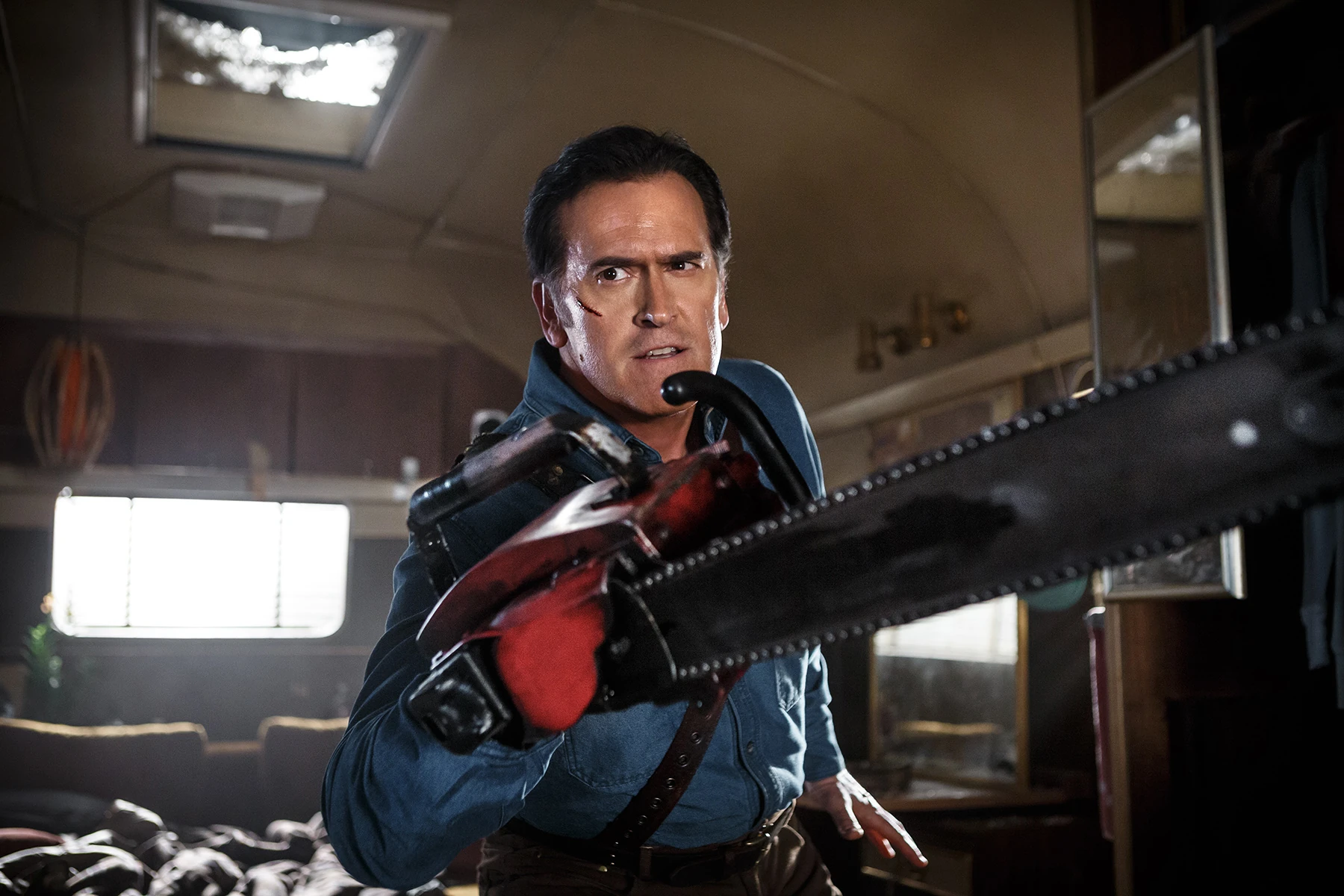
1. Season 1, Episode 1: “El Jefe”
The series premiere “El Jefe” brings Ash Williams back into the spotlight after 30 years of living a quiet life. When the Necronomicon accidentally releases the Deadites again, Ash reluctantly steps back into his role as humanity’s savior. This episode does a great job of reintroducing us to Ash’s brash, arrogant, but lovable personality, while setting the tone for the mayhem to come. Full of gore, humor, and over-the-top action, this episode is a perfect mix of nostalgia and modern horror.
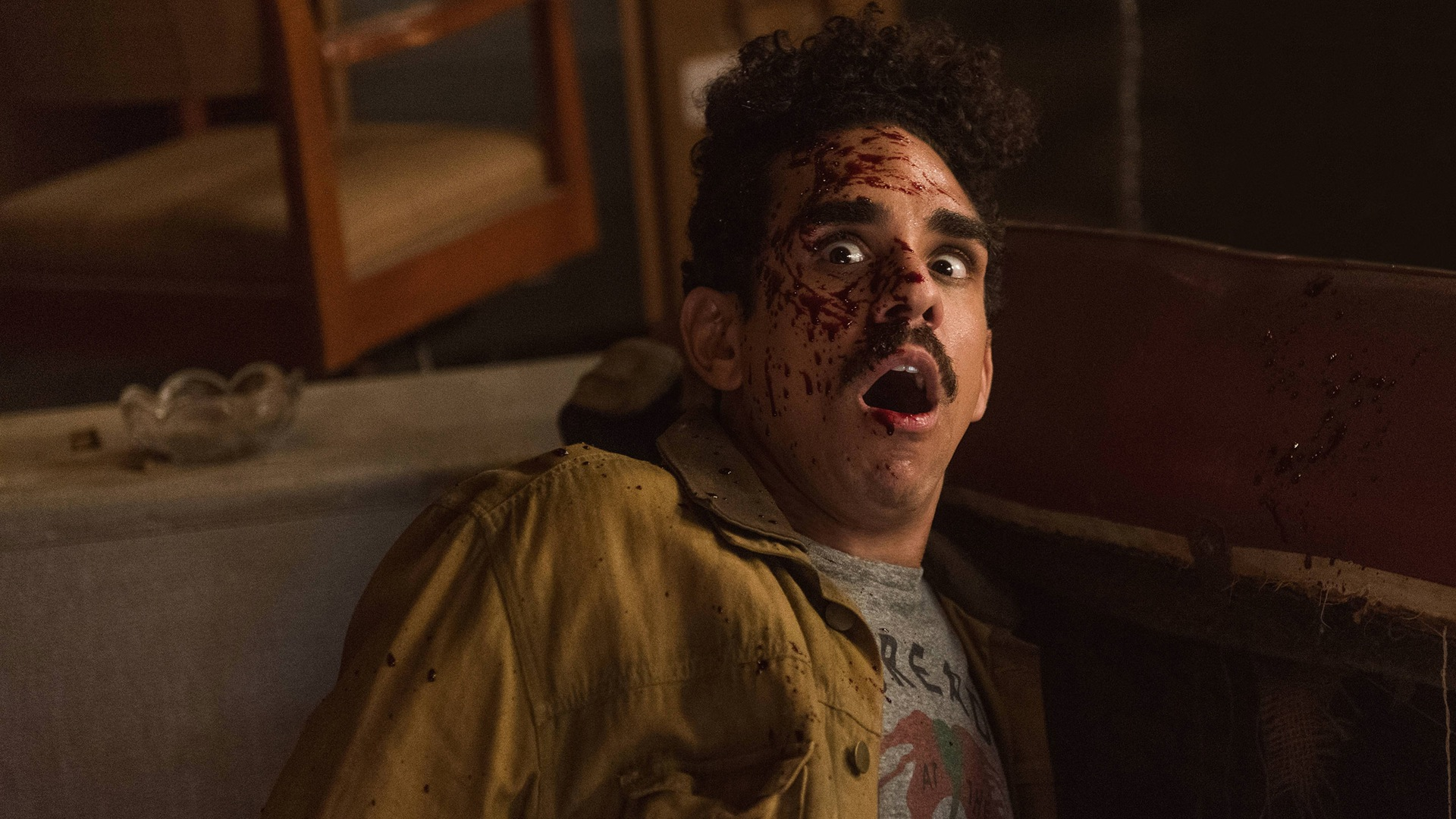
2. Season 2, Episode 2: “The Morgue”
Widely regarded as one of the best episodes in the series, “The Morgue” is a gory, gross-out extravaganza. Ash and Pablo infiltrate a morgue to retrieve the Necronomicon from a cadaver, leading to one of the most memorable scenes in horror television. Without giving too much away, Ash’s battle with a corpse in this episode is both hilarious and disgusting in a way that only Evil Dead could pull off. Campbell’s physical comedy and fearless approach to the bizarre is on full display here.
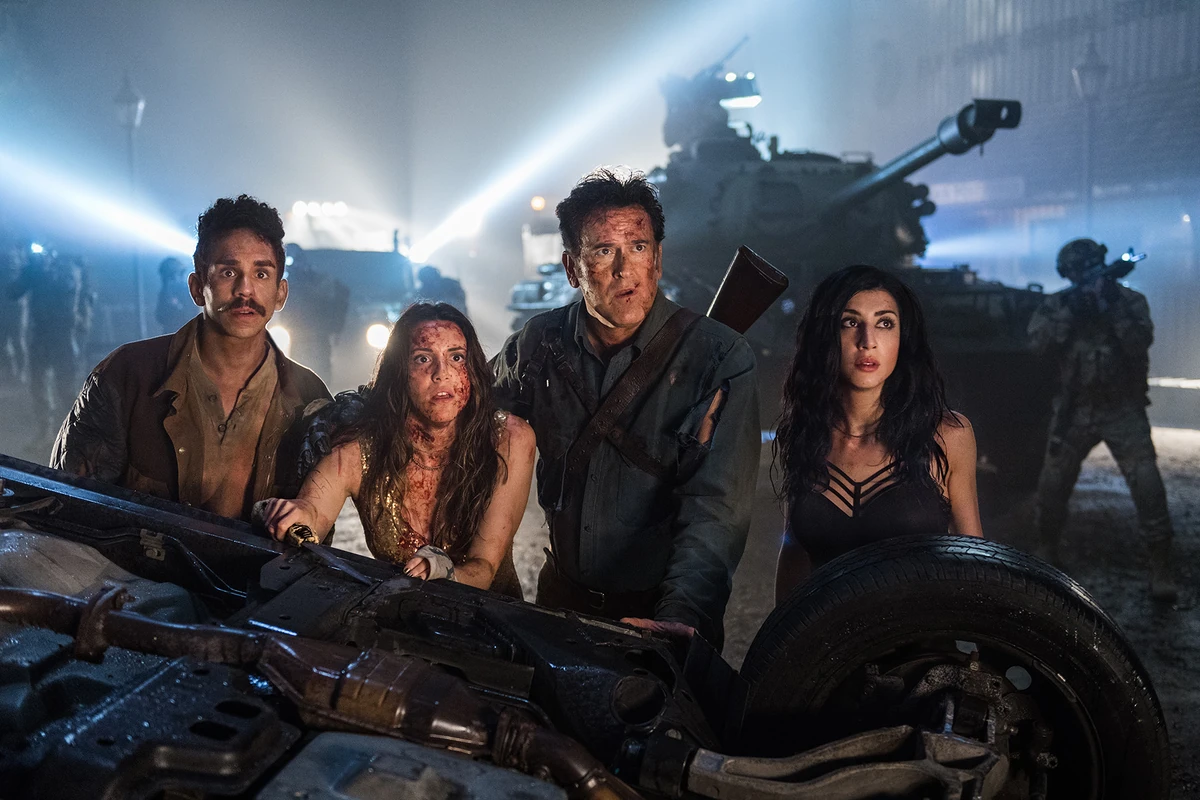
3. Season 3, Episode 10: “The Mettle of Man”
The series finale, “The Mettle of Man,” delivers on everything fans love about Ash vs Evil Dead—epic Deadite battles, blood-splattered action, and Bruce Campbell being the ultimate hero. As Ash confronts the Dark Ones and an apocalypse-level Deadite invasion, he makes the ultimate sacrifice to save humanity. This finale is bittersweet, providing plenty of epic moments for Ash while leaving fans wanting more. It’s a perfect end to a wild and thrilling series, with Campbell at his very best.
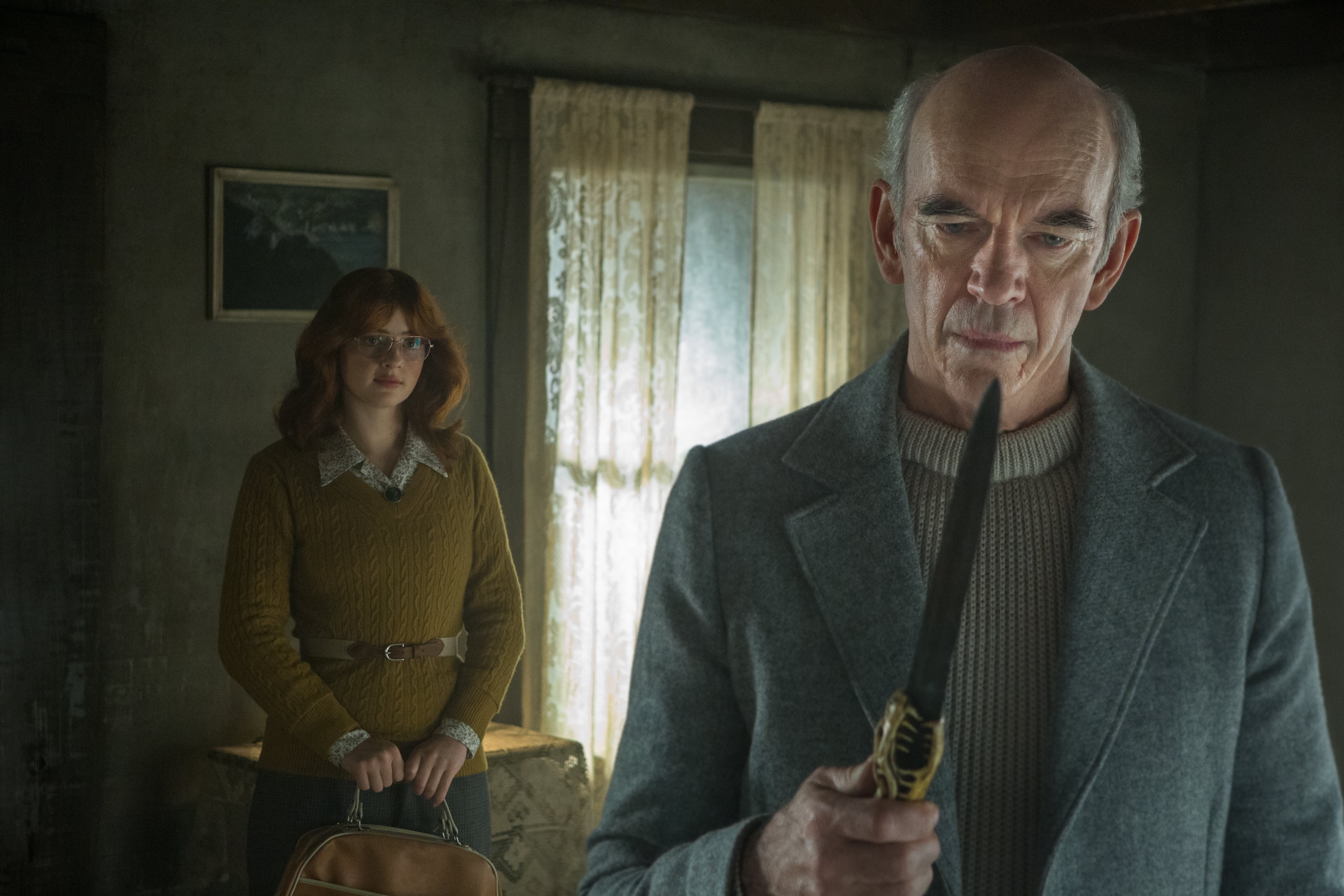
4. Season 2, Episode 9: “Home Again”
In “Home Again,” Ash is forced to confront his past by returning to the iconic cabin in the woods, where the Evil Dead saga first began. This episode is packed with nostalgia for long-time fans, bringing back all the familiar chills and thrills of the original Evil Dead films. The episode also features a strong emotional core, as Ash comes face-to-face with the memories of his friends and family who were lost to the Deadites. Bruce Campbell delivers a more layered performance in this episode, blending his usual snark with genuine pathos.
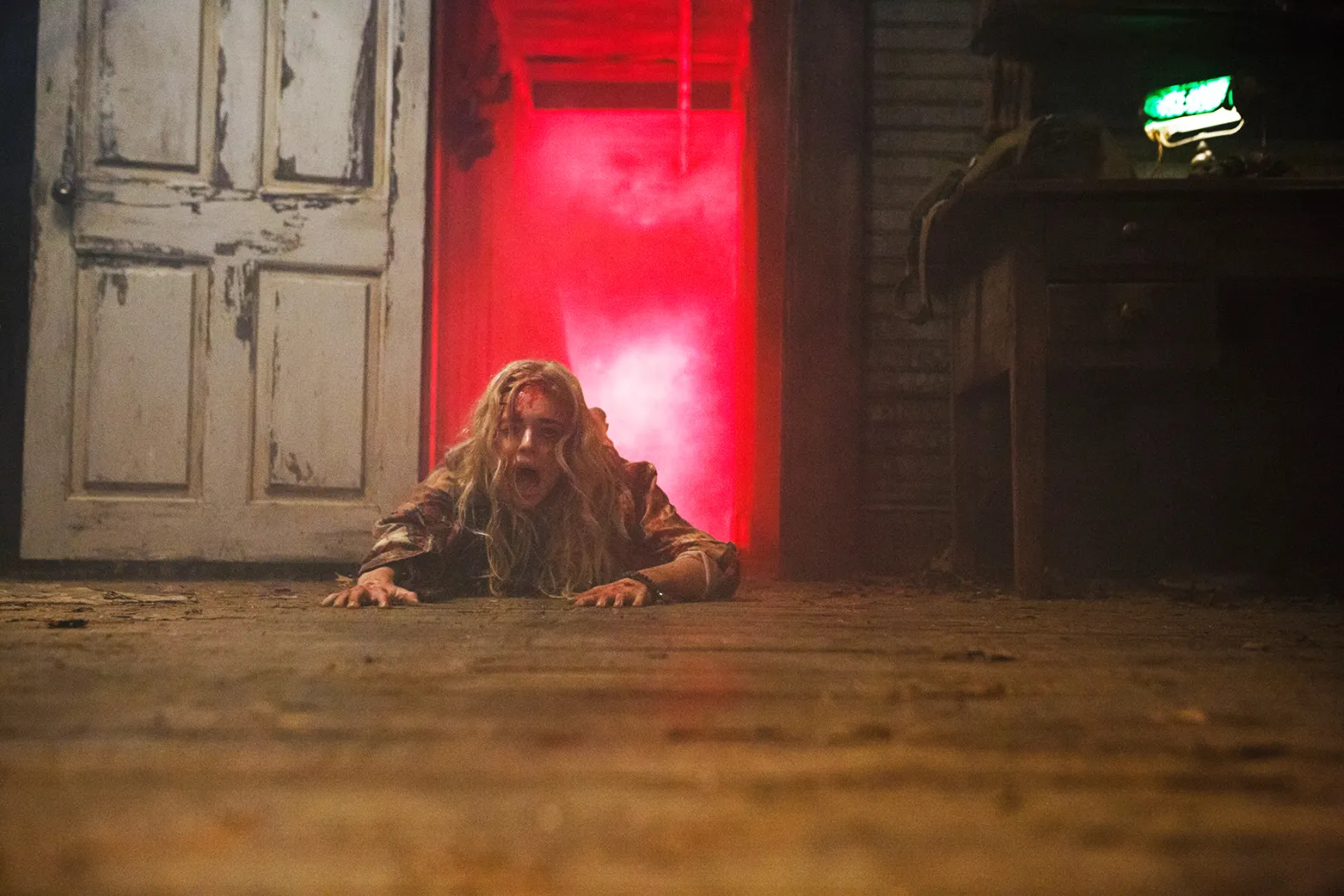
5. Season 1, Episode 8: “Ashes to Ashes”
“Ashes to Ashes” takes Ash back to the cabin for the first time in the series, where he must deal with his own demonic doppelgänger, Evil Ash. This episode plays with the classic Evil Dead themes of possession and madness, delivering a blend of psychological horror and dark comedy. The showdown between Ash and his evil twin is a series highlight, full of blood-soaked action and classic one-liners. Campbell’s dual performance as both hero and villain makes this episode a standout.
Why Horror Fans Love Ash vs Evil Dead
Bruce Campbell’s portrayal of Ash Williams is a large part of what makes Ash vs Evil Dead such a beloved show among horror fans. His ability to combine humor, physicality, and sheer badassery into one character has solidified his place as a horror icon. Whether he’s decapitating Deadites with his chainsaw or delivering snarky one-liners, Campbell’s Ash is always the highlight of any episode. His performance elevates the show from standard horror-comedy fare into a cult classic.
For fans of Bruce Campbell and the Evil Dead franchise, Ash vs Evil Dead is a must-watch series that honors the legacy of the films while pushing the boundaries of horror-comedy. These top five episodes showcase the very best of Ash’s wild, gory, and hilarious adventures. Whether you’re in it for the splatter, the laughs, or Campbell’s unbeatable charm, these episodes are essential viewing.

